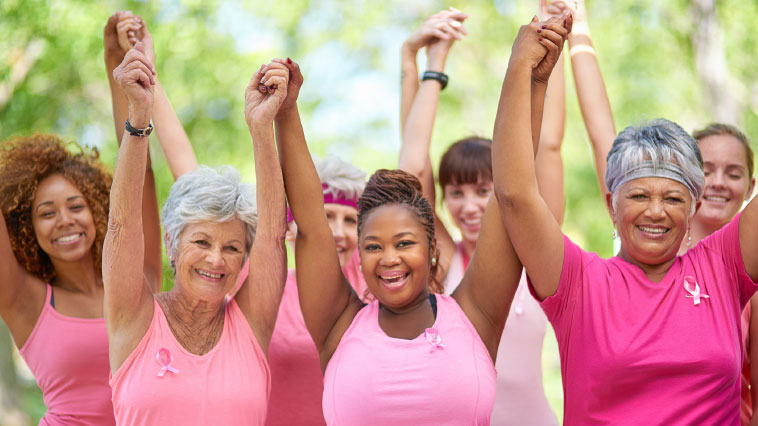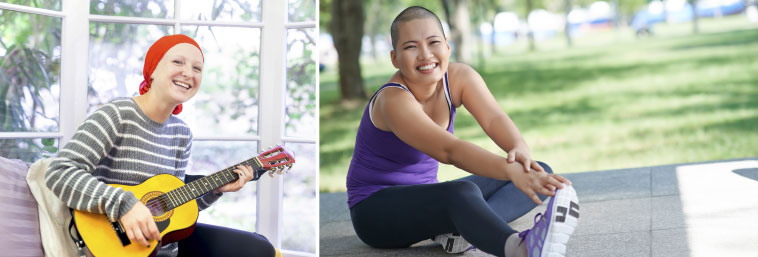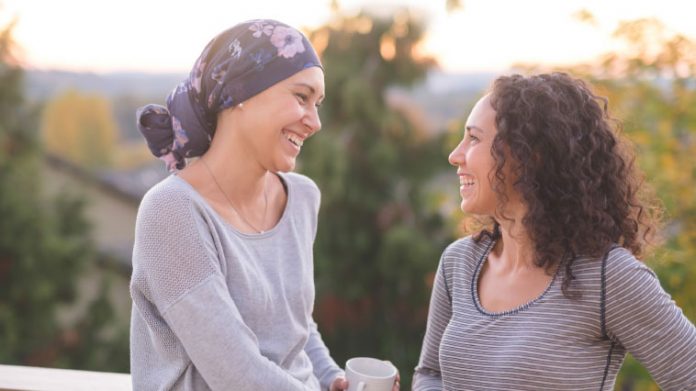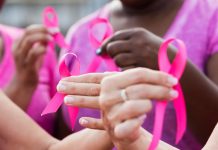Chemotherapy has shown high success rates in treating malignant tumours of the breast. Behnaz Sanjana finds out more about what it is and its undesirable effects.
With breast cancer being an unfortunate, but common, occurrence amongst the world’s female population, the word chemotherapy as a way of treatment is a familiar one. It is different from other forms of treatment, like radiation or surgery, in that it does not remove, eradicate or impair cancer cells in a targeted area of the body, but works all over the body.
WTM has done the research and consulted with an expert in caring for those fighting the disease to give you a well-rounded gist of what to expect.
Overview of Chemotherapy
Chemotherapy (also referred to as chemo) may be used to either completely cure cancer for good or simply control the tumours from growing and spreading. The latter allows the patient to live better and longer, even if the malignancy has not completely gone away. However, in advanced cases, it is administered as a form of palliation, which means to help improve the quality of the patient’s life by reducing pain or discomfort caused by cancer.
 The oncologist (a doctor specialising in the diagnosis and treatment of cancer) decides which chemotherapy drugs a patient needs (it could be one or a combination of several) and the dosage they require. This depends upon the type and stage of the cancer, the patient’s age, other health conditions and previous treatments received.
The oncologist (a doctor specialising in the diagnosis and treatment of cancer) decides which chemotherapy drugs a patient needs (it could be one or a combination of several) and the dosage they require. This depends upon the type and stage of the cancer, the patient’s age, other health conditions and previous treatments received.
Most of these medications are very strong drugs and need to be given in precisely calculated dosages and schedules. What’s important is to give enough chemo to kill the cancer cells without causing other serious problems.
(source: www.cancer.org)
As chemo drugs work throughout the body, they have some unwanted side effects, besides working against malignant cells. A representative of Think Pink, Bahrain (name withheld on request), who is also a breast nurse at one of Bahrain’s most renowned and trusted hospitals talks about how to deal with the chemotherapy and its fallouts.
“Between six and eight sessions of chemotherapy may be required,” she says, speaking specifically of breast cancer. “Of course, this depends on the histopathology result of the tumour. The sessions are spaced three to four weeks apart. The medicine is given intravenously at the hospital and the patient can go home the same day.” She mentions that, usually, radiation therapy is given to the cancerous area after chemotherapy sessions are completed. “This is followed by hormone therapy for almost five years as a prophylactic [a preventive measure],” she adds.
 Our expert maintains that it is important that patients know about their treatment plan and the side effects of chemotherapy. “During and after chemotherapy, one is advised to take rest, take medications as prescribed, eat healthy food and avoid coming in contact with sick people for a few days, till their own immunity recovers. Chemotherapy is the most difficult time in cancer treatment, so it is best to concentrate on the treatment’s goal with high spirits and a positive outlook,” she says.
Our expert maintains that it is important that patients know about their treatment plan and the side effects of chemotherapy. “During and after chemotherapy, one is advised to take rest, take medications as prescribed, eat healthy food and avoid coming in contact with sick people for a few days, till their own immunity recovers. Chemotherapy is the most difficult time in cancer treatment, so it is best to concentrate on the treatment’s goal with high spirits and a positive outlook,” she says.
The most common undesirable effects of chemotherapy are hair loss, nausea, vomiting and fatigue. “These side effects occur because chemotherapy given through the veins also damages healthy cells,” says our expert, while giving us tips in dealing with other lesser known consequences of the treatment.
Hair loss
Avoid excessive brushing of the hair, use of any hair spray or any heat such as from a hair dryer. It’s beneficial to protect the hair by wearing a head covering.
Extremes in temperature and mood swings
Eating healthy food and engaging in suitable exercise is a must. It’s important to find ways to manage stress and ask for support from family, friends and healthcare providers.
Mouth ulcers
Care for oral health and rinse the mouth regularly to keep it clean. Using a soft toothbrush with fluoride paste helps.
Nausea
Eat small meals, eat slowly and chew food completely. Food should be cold or at room temperature.
Unpleasant mouth taste
Clean the mouth before starting a meal. Food with strong flavours can help with this issue.
Loss of appetite
Have six to eight small meals and choose more of protein and fat-rich foods. Drink beverages after food.
Insomnia
Avoid napping during the day, take medications as prescribed and use relaxation techniques. Avoid caffeine for at least six to eight hours before bedtime.
 We also asked the expert about the best way to deal with scars and breast reconstruction after breast cancer surgery. “There are two types of surgery: lumpectomy (removal of the tumour only) or mastectomy (removal of the breast). If the physician plans a mastectomy the patient has the option to do a reconstructive surgery,” she says.
We also asked the expert about the best way to deal with scars and breast reconstruction after breast cancer surgery. “There are two types of surgery: lumpectomy (removal of the tumour only) or mastectomy (removal of the breast). If the physician plans a mastectomy the patient has the option to do a reconstructive surgery,” she says.
Reconstructive surgery can be done at the same time as the mastectomy, or at a later stage. In this procedure, a plastic surgeon reconstructs the breast either with tissue from another location on the body or with an implant or sometimes both. Prosthetics are an alternative to reconstruction, and involve a prosthesis (also called a breast form) to give the body the look of a natural female form.
Staying positive and strong during breast cancer treatment:
– Read up to know the disease and your treatment plan better.
– Stay focused on the goal of the treatment.
– Get support from family, friends and other survivors.
– Plan you day, prioritise and organise what is necessary.
– Take good rest.
– Exercise daily.
Our expert reminds women that early detection is key to surviving breast cancer. She says: “All women are advised to have an annual check-up to facilitate early detection of the problem. Think Pink believes in being breast aware through iCheck, the free mobile application that you can download in Arabic and English.”





































